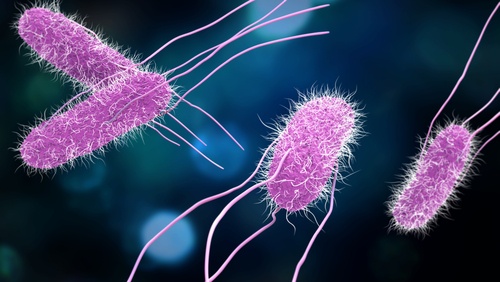
A recent study has found evidence linking exposure to salmonella to an increased risk of colon cancer. Salmonella is a common bacterial disease which affects the intestinal tract of humans. While the bacteria which cause the disease typically live in animals, humans can become infected through contaminated meats or water.
Published in Cell Reports Medicine, the researchers studied tissue samples of human colon cancer and animal models. What they found was that, when exposed to salmonella, colon cancers developed more rapidly and grew larger.
First, the authors of the study evaluated data from a prior retrospective study of colon cancer patients based in the Netherlands. This prior study found that when salmonella antibodies were found in tissue samples taken during colon surgeries, those patients tended to have worse colon cancer outcomes. The U.S.-based researchers then began using salmonella strains isolated from the colon cancer tissue samples in mice that had also been exposed to the bacteria.
“Repetitively infecting mice with low non-typhoidal Salmonella (NTS) exposure showed similar accelerated tumor growth to that observed after high NTS exposure,” the researchers wrote. In addition to observing accelerated growth of tumors in mice with salmonella exposure, the researchers also noted that there was an increased rate of salmonella translocated to the tumor.
“During infection, salmonella hijacks essential host signaling pathways, and these molecular manipulations may cause oncogenic transformation. The current study tells us that more research is needed into the connection between salmonella exposure and colon cancer risk in the USA,” Jun Sun, PhD, of the Department of Medicine Gastroenterology and Hepatology at the University of Illinois Chicago stated.
Journal Source: Cell Reports Medicine







 © 2025 Mashup Media, LLC, a Formedics Property. All Rights Reserved.
© 2025 Mashup Media, LLC, a Formedics Property. All Rights Reserved.